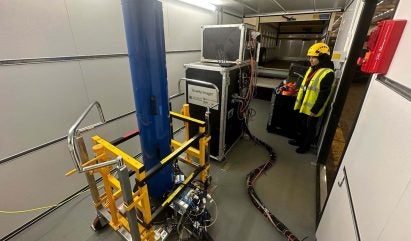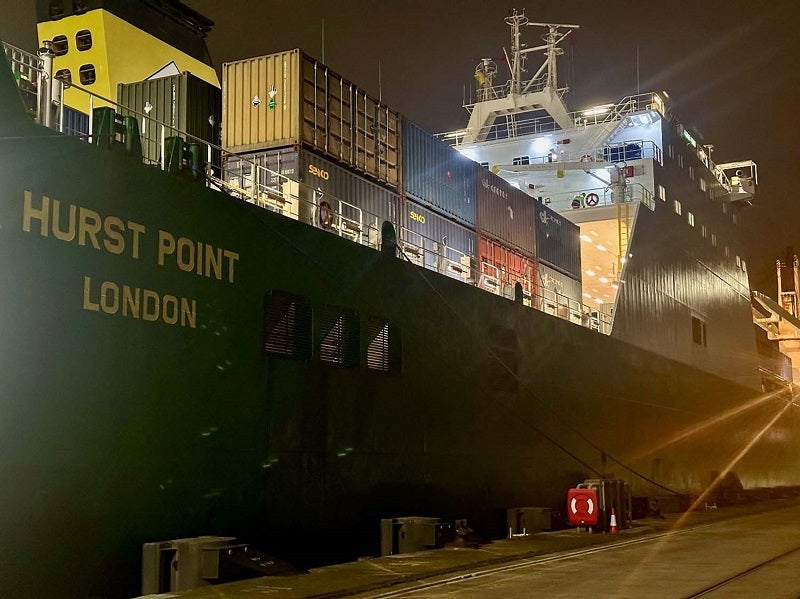
Onboard the UK Royal Navy cargo ship, Hurst Point, the Office for the Chief Technology Officer (OCTO), along with scientists from the University of Birmingham (UoB) and Defence Science and Technology Laboratory (Dstl) – an executive agency within the UK Ministry of Defence (MoD) – applied quantum mechanics to navigation tools at sea.
It is hoped that these experiments will pave the way for more advanced positioning and navigation at sea.
Already proven to work on a vessel alongside, quantum navigation has the potential in the future to provide a system that does not rely on a global positioning system for navigation, making it less susceptible to jamming, imitation or other forms of sabotage.
How does the Navy’s experiment work?
As a new type of accelerometer, the technology measures how an object’s speed changes over time.
By combining this information with rotation measurements and the initial position of the object, the current location can be calculated.
It uses ultra-cold atoms to make highly accurate measurements which, when cooled to extremely low temperatures the atoms start displaying wave-like properties.
How well do you really know your competitors?
Access the most comprehensive Company Profiles on the market, powered by GlobalData. Save hours of research. Gain competitive edge.

Thank you!
Your download email will arrive shortly
Not ready to buy yet? Download a free sample
We are confident about the unique quality of our Company Profiles. However, we want you to make the most beneficial decision for your business, so we offer a free sample that you can download by submitting the below form
By GlobalDataAs the atoms move through the sensor, an ‘optical ruler’ is formed by using a series of laser pulses. This allows the acceleration of the atoms to be precisely measured.
By taking this technology to sea, OCTO, the UoB and Dstl were able to evaluate the effects of ship vibration, motion and acceleration that will lay further foundations for quantum mechanics as navigation systems.

What makes this solution an advancement?
“In this experiment, we are advancing novel navigational techniques toward a fully resilient satellite free capability,” explained Chester Butterworth, deputy chief technology officer and MoD project lead.
In a report on Quantum Computing in Defence (2023), the leading intelligence consultancy GlobalData observed that although quantum technology lacks sufficient maturity to warrant more widespread global investment, the few key players on the market have identified several areas in which quantum has the potential to bring transformative change which will radically alter the conduct of future conflicts.
Quantum computing could exponentially improve the accuracy of precision navigation technologies (PNT), with quantum clocks enhancing operational synchronicity while quantum inertial navigation improves the reliability of inertial navigation systems (INS) which rely on global navigational satellite systems (GNSS).
Quantum INS would ultimately help forces detect GNSS deception, jamming and spoofing more efficiently, allowing for critical course corrections to circumvent potential traps or defences.
Such solutions would provide extreme reliability while making signal interception or interference practically impossible, a capability that is of particular interest in the field of submersible operations.
GlobalData also pointed out that due to their need to navigate extreme distances undetected, submarines are one of the platforms most likely to benefit from the emergence of quantum inertial navigation.
Nuclear deterrence forces such as nuclear-powered ballistic missile submarines – namely the future Vanguard class, in particular – would likely be the first such submarines to receive this capability as it would radically enhance their stealth profiles and consequently their deterrent effect.






